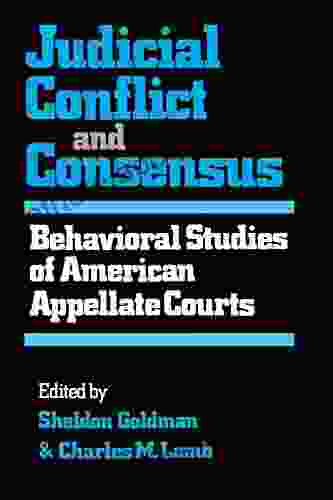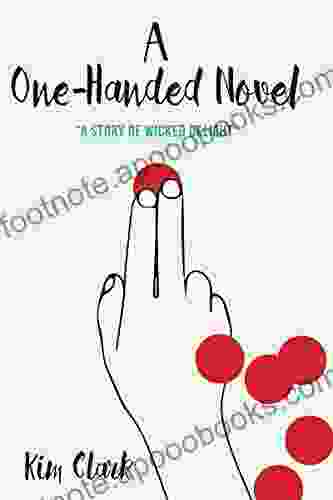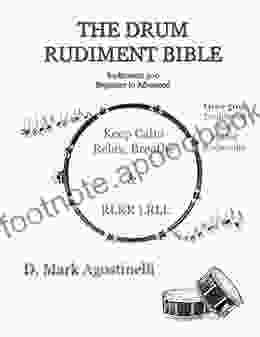Behavioral Studies of American Appellate Courts: Unlocking the Inner Workings of Justice

American appellate courts play a pivotal role in the administration of justice, serving as the final arbiters of legal disputes and shaping the interpretation of the law. In recent years, behavioral studies have emerged as a powerful tool to shed light on the inner workings of these courts, providing invaluable insights into the dynamics, influences, and decision-making processes that shape their outcomes.
This article delves into the captivating field of behavioral studies of American appellate courts, exploring the key findings, methodologies, and implications of this burgeoning area of research. We will uncover the factors that influence judicial decision-making, the dynamics of appellate panels, and the impact of institutional structures on court behavior.
4.6 out of 5
| Language | : | English |
| File size | : | 8348 KB |
| Text-to-Speech | : | Enabled |
| Enhanced typesetting | : | Enabled |
| Word Wise | : | Enabled |
| Print length | : | 320 pages |
| Screen Reader | : | Supported |
Methodology and Key Findings
Behavioral studies of appellate courts employ a range of methodologies, including quantitative and qualitative analysis of court records, interviews with judges and court staff, and experimental simulations. These approaches have yielded a wealth of insights into the following key areas:
Cognitive and Affective Influences:
Research suggests that judges' personal beliefs, values, and biases can influence their rulings, particularly in cases involving controversial or emotionally charged issues. Cognitive shortcuts, such as heuristics and framing effects, may also play a role in shaping judicial decisions.
The Role of Collegiality:
Appellate courts are typically composed of panels of judges who deliberate and decide on cases collectively. Studies have shown that collegiality, or the desire to maintain harmonious relationships among judges, can affect the outcome of cases, leading to a tendency towards consensus and compromise.
Institutional Structures:
The institutional structures of appellate courts, such as the size of panels, the selection process for judges, and the rules governing judicial conduct, can also influence court behavior. For example, larger panels tend to exhibit greater diversity of opinions and produce more moderate outcomes.
The Influence of Gender, Race, and Ideology
Studies have examined the potential impact of demographic and ideological factors on judicial decision-making. While research findings have been mixed, some evidence suggests that gender, race, and political ideology may influence judges' perspectives and rulings on certain types of cases.
Gender:
Research has shown that female judges may be more likely to consider the perspectives of underrepresented groups and to exhibit greater empathy in their decisions. However, these findings are not universally consistent across studies.
Race:
Studies on the role of race in judicial decision-making have yielded inconclusive results. Some research suggests that judges of color may be more sensitive to issues of racial discrimination and equality, while other studies find no significant racial disparities in outcomes.
Ideology:
Judges' political ideology has been shown to influence their decisions, particularly in cases involving issues of public policy or constitutional interpretation. Conservative judges tend to favor narrower interpretations of the law, while liberal judges are more likely to adopt expansive views.
Implications for Judicial Decision-Making
The findings of behavioral studies have important implications for understanding judicial decision-making and improving the administration of justice. These insights can help:
Enhance Judicial Self-Awareness:
By understanding the factors that influence their decisions, judges can become more aware of potential biases and take steps to mitigate their impact.
Improve Court Design:
Institutional structures, such as the size of panels and the selection process for judges, can be designed to promote fairness, diversity, and accountability.
Foster Public Trust:
Transparency and understanding of appellate court behavior can help build public trust in the judiciary and ensure the legitimacy of its decisions.
Behavioral studies of American appellate courts have revolutionized our understanding of these influential institutions. By delving into the cognitive, affective, and institutional factors that shape judicial decision-making, researchers have illuminated the complex dynamics that underpin the administration of justice. These insights have the potential to enhance judicial self-awareness, improve court design, and foster greater public trust in the judiciary.
As this field of research continues to flourish, we can expect to gain even deeper insights into the inner workings of American appellate courts, ultimately contributing to a more just and equitable society.
4.6 out of 5
| Language | : | English |
| File size | : | 8348 KB |
| Text-to-Speech | : | Enabled |
| Enhanced typesetting | : | Enabled |
| Word Wise | : | Enabled |
| Print length | : | 320 pages |
| Screen Reader | : | Supported |
Do you want to contribute by writing guest posts on this blog?
Please contact us and send us a resume of previous articles that you have written.
 Book
Book Novel
Novel Page
Page Chapter
Chapter Text
Text Story
Story Genre
Genre Reader
Reader Library
Library Paperback
Paperback E-book
E-book Magazine
Magazine Newspaper
Newspaper Paragraph
Paragraph Sentence
Sentence Bookmark
Bookmark Shelf
Shelf Glossary
Glossary Bibliography
Bibliography Foreword
Foreword Preface
Preface Synopsis
Synopsis Annotation
Annotation Footnote
Footnote Manuscript
Manuscript Scroll
Scroll Codex
Codex Tome
Tome Bestseller
Bestseller Classics
Classics Library card
Library card Narrative
Narrative Biography
Biography Autobiography
Autobiography Memoir
Memoir Reference
Reference Encyclopedia
Encyclopedia Cathy Cash Spellman
Cathy Cash Spellman Leonard Cohen
Leonard Cohen Cathy L Seeley
Cathy L Seeley Chaplain Stephen Dicks
Chaplain Stephen Dicks Cathy Morrison
Cathy Morrison Dana K White
Dana K White Doug Wittnebel
Doug Wittnebel Thomas E Alexander
Thomas E Alexander Eric Sarrett
Eric Sarrett Chaitanya Limbachiya
Chaitanya Limbachiya Tananarive Due
Tananarive Due Josiah Howard
Josiah Howard Charles Sacchetti
Charles Sacchetti Debra Denker
Debra Denker Catherine Price
Catherine Price Dawnaya Key
Dawnaya Key Carolyn Collins
Carolyn Collins Charles K Hyde
Charles K Hyde Lawrence Jeffery
Lawrence Jeffery Carrie Callaghan
Carrie Callaghan
Light bulbAdvertise smarter! Our strategic ad space ensures maximum exposure. Reserve your spot today!
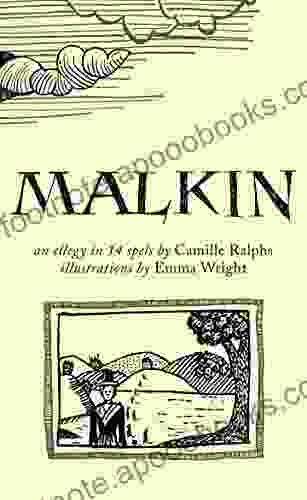
 Steven HayesDiscover the Enigmatic World of Malkin Charles Morris: A Journey Through Art,...
Steven HayesDiscover the Enigmatic World of Malkin Charles Morris: A Journey Through Art,... Davion PowellFollow ·2.4k
Davion PowellFollow ·2.4k Dale MitchellFollow ·16.6k
Dale MitchellFollow ·16.6k Leslie CarterFollow ·18.4k
Leslie CarterFollow ·18.4k Jarrett BlairFollow ·9.3k
Jarrett BlairFollow ·9.3k Bryan GrayFollow ·9k
Bryan GrayFollow ·9k Braden WardFollow ·8.7k
Braden WardFollow ·8.7k Gabriel BlairFollow ·8.9k
Gabriel BlairFollow ·8.9k Arthur MasonFollow ·9.9k
Arthur MasonFollow ·9.9k

 Angelo Ward
Angelo WardThe Original Home School: A Journey of Love, Learning,...
In the annals of...

 Heath Powell
Heath PowellAfrican American Education in Slavery and Freedom: The...
The history of African...
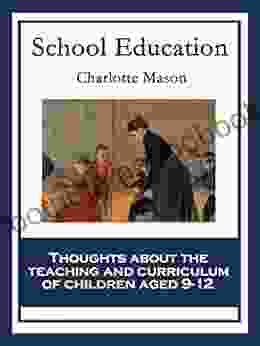
 Jamal Blair
Jamal BlairEmbrace the Wonder and Simplicity of Charlotte Mason...
Discover the...

 Cason Cox
Cason CoxUnveiling the Truth: A Mother's Courageous Journey to...
A Mother's Love Unbound: The Power of...

 Jamal Blair
Jamal BlairOver 100 Original Aussie Bush Ballads: A Journey Through...
Embark on a literary odyssey into the...
4.6 out of 5
| Language | : | English |
| File size | : | 8348 KB |
| Text-to-Speech | : | Enabled |
| Enhanced typesetting | : | Enabled |
| Word Wise | : | Enabled |
| Print length | : | 320 pages |
| Screen Reader | : | Supported |


